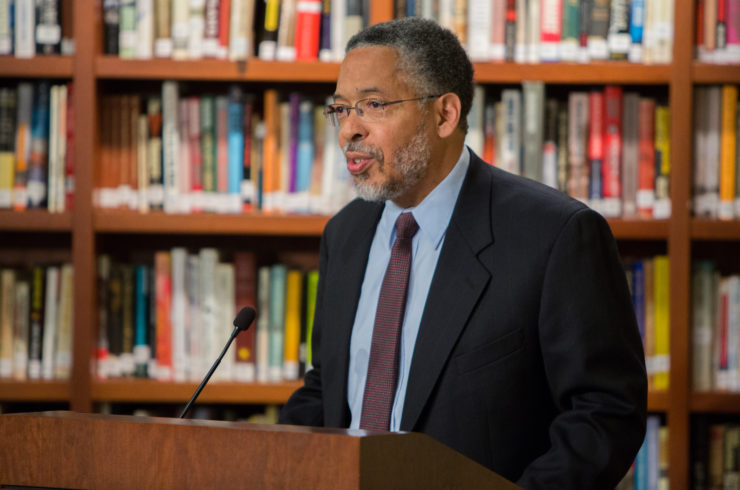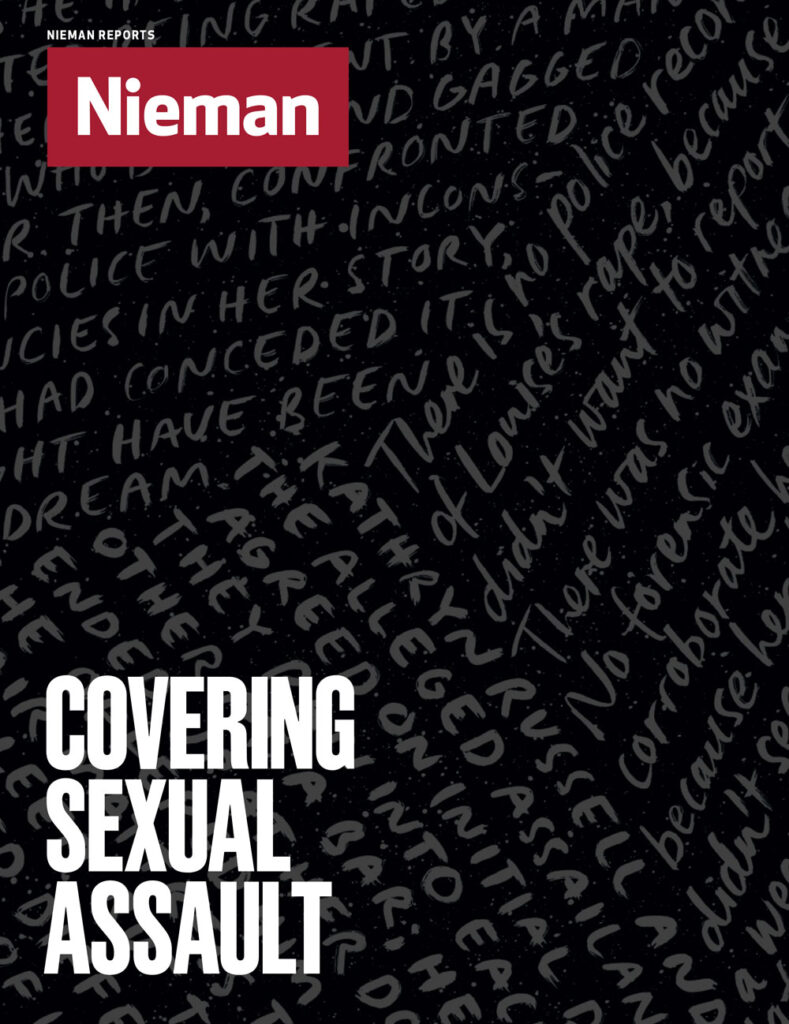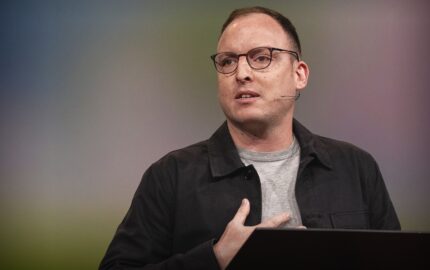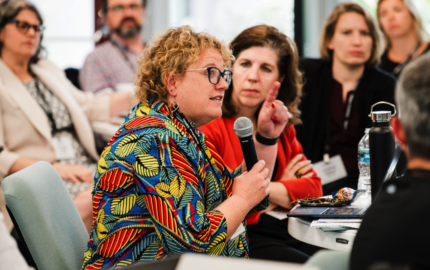Lewis W. Diuguid was selected by the Nieman class of 2017 for the Louis M. Lyons Award for Conscience and Integrity in Journalism in recognition of his commitment to excellence in journalism as well as his work as a newsroom leader and role model for young journalists. Diuguid, who was also recently named a 2017 Knight Visiting Nieman Fellow, spent nearly 40 years at The Kansas City Star as an editor, columnist, and editorial board member, distinguishing himself as a relentless advocate for newsroom diversity and used his voice to draw attention to social inequities, write about civil rights, and highlight systematic injustices.
The following essay is adapted from his Lyons Award acceptance speech:
There are two virtues—conscience and integrity—that should never be subtracted from the ethical practice of journalism in order for our now embattled industry and each of us to maintain an unimpeachable credibility. But all of that is constantly being challenged now and corrupted.
I think back 40 years ago to one of the first stories I covered for The Kansas City Star-Times as a young general assignment reporter and photographer. My editors sent me to a dinner meeting in 1977 and wanted a story on what the speaker said. I got to the Hilton Plaza Inn early to talk with the organizer. We spoke, and then he offered me a seat at one of the many the tables so that I could enjoy a “free” dinner.
All of the canons of ethics in journalism were still swirling in my 21-year-old head from the University of Missouri-School of Journalism, the world’s oldest (established in 1908) and (wait for it) still the best school of journalism on the planet. So I declined. The host of the dinner was shocked that I said no to the free meal. I said I would take a seat by the door and wait to take notes on what the speaker had to say so I could return to the newsroom to write my story for the morning newspaper.
When I returned to the newsroom, I wrote the story, and it ran the next morning, and I still refuse free meals, gifts and other potentially compromising things. Strict ethics rules and being above even the appearance of a conflict of interest caught up to The Kansas City Star-Times, proving me correct in my early commitment to doing the right thing in this profession.
In my career, I have stood up to numerous ethical challenges for myself and many voiceless others without blinking about the consequences. I owe that uncompromising integrity to my mother, my father, and the black community in which I was raised. My parents, in tandem with other African Americans, instilled in every kid they encountered that we had to be twice as good, cleaner than clean and work five times harder to make it in white America. Anything less was just unacceptable.
I have tried to instill that sense of on-the-job excellence as a faculty member since 1982 for a journalism academy that the Kansas City Association of Black Journalists annually provides, as a faculty member from 1991 to 2007 for the Maynard Institute for Journalism Education’s Editing Program fellowship and with every young person I encounter on the job, at church, in the community, in journalism schools nationwide and at journalism conventions. It’s needed now more than ever. Here’s why. It’s about more than newspapers, magazines, radio, television and new media journalism. The well-being of the United States, our democracy and good government in all countries depends on uncompromising quality being maintained in journalism. That’s because people in this country and elsewhere depend on accurate, honest, ethical and timely reporting and writing so that they can make the best possible decisions in our free society. That’s at the core of the philosophy, existentialism.
When we fail to do our jobs properly as journalists we make existential victims out of a population of people who depend on a free press for good information. So when we don’t do our jobs right; when we are unethical; when we lack integrity; when we are not honest; when we let racism, sexism, homophobia, classism, or elitism into our copy; when we succumb to pressure to get a story first instead of getting it right, we hurt our country and all of the people in it.
I [often think of] a story that singer, actor, and civil rights activist Harry Belafonte shared at a National Association of Black Journalists convention after a big civil rights victory. Everyone was jubilant except the Rev. Martin Luther King Jr. Belafonte said he asked Dr. King why he also wasn’t happy. King replied, “I fear that we are integrating ourselves into a burning building.” His concern back in the 1960s was that white America was on fire with racial hatred, with war, with social and economic inequality, with sexism, with elitism, with classism and with homophobia just to name a few, and Dr. King was right then just as he would be today under Donald Trump’s occupation of the White House (with the help of Russian hackers). Belafonte explained that black America had to become the world’s best firefighters to douse the roaring flames of social and economic wrongs at home and abroad. But it’s also from the best of black America, which gave the nation the gifted leadership of President Barack Obama, that our ailing journalism profession also can be salvaged. The diversity of this nation is its greatest strength. More people just need to discover that undeniable truth.
Like the black community of my youth, each of us has a responsibility to build up others around us to harness the best that our diversity has to offer. It is in our own self-interest to do nothing less.
I tell journalism students that our profession is built on the sands of doubt—we doubt our sources, we doubt our notes, we doubt what we write, and then our editors doubt us and everything that we do. The doubt is all about making our journalism better by compelling us to get more sources, ask better questions and write more fact-based, compelling stories. But the sands of doubt grind deeply into the skin of our souls and our self-confidence, and that takes a heavy toll on each of us. Keep in mind that it’s worse for journalists of color in this white-male dominated industry because there are still a lot of people who think we don’t have the intellectual horsepower, the necessary skills with the language and we often lack our colleagues’ trust on whether we will be black first or a journalist on the job in our writing and editing stories.
I had one city editor in discussions about a planned series of stories on African Americans moving to the suburbs that my staff of reporters were assigned to do tell me that I could not edit that important series because I’m black. To which I quickly retorted, “So does that mean you can’t edit any stories about white people because you’re white?” He got my point and apologized for making such a racially stupid statement.
My dear friend and a co-presenter Dr. Peggy McIntosh of the Wellesley College Centers for Women, who did the groundbreaking work on white privilege, explained to me that the bigoted mindset that women and people of color constantly encounter is because knowledge in this country is always thought to be male and white. Everyone else is forever tested and doubted. I’ve had editors in my career tell me: “We hired you to be a journalist. Leave that black stuff outside” when I insisted on better reporting about communities of color. Because I was relentless—just as I was taught by the black community—I prevailed, and the newspaper changed. However, tough economic times keep erasing the advances. We have to fight the undoing of us, of others and of our needed progress by supporting those journalists and otherwise voiceless people in the community around us. It is how our journalism constantly gets better.
These are increasingly challenging times. Without evidence—which is his hallmark—Donald Trump throughout his run for the White House attacked the ethics, integrity, honesty and competence of the news media, and the gullible public has swallowed it as if it all were true.
The next four years will be all about ethics, integrity, conscience, and honesty among government officials and those in the news media. Our industry—just as things were when I started my career—will be pulled to cut costs and cut corners, bend and break rules, make unholy alliances and compromises, and sell out our integrity and ethics in the interest of expediency, corporate shareholders, and cash. The reporting, editing and photo-shooting troops on the ground have to be bigger than that—they will have to be like the people of the black community that raised me. We have to push back. Ethics is the well-constructed canal through which good journalism must flow. The heavy downpour of social media and the toxic sewage of fake news must never replace the essential information of good, quality journalism. We have to say no to running with that torrent, and instead stand on the pillars of the best of our profession even against the crushing interests of big money.
[Journalists] must be disciples of the gospel of journalism excellence. You have to embrace your responsibility and go forth from your newsrooms and share with others the non-negotiable values of our profession. I am reminded of what the black community instilled in me—it comes from the Bible, instructing that to those whom much is given, much then is expected. It’s greater than Dr. King’s and the civil rights movement’s instruction of “each one teach one.” You absolutely cannot, in these challenging times, [continue] thinking you have no responsibility to do more than you have ever done for our profession and for others.




